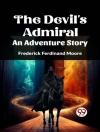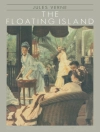F. Scott Fitzgerald’s ‘The Great Gatsby’ is a poignant exploration of the American Dream, set against the opulent backdrop of the Roaring Twenties. Through the eyes of the narrator, Nick Carraway, the novel delves into themes of wealth, love, and moral decay, revealing the elusive nature of aspiration. Fitzgerald’s lyrical prose, characterized by rich imagery and a keen sense of irony, captures the decadence of the Jazz Age, while also critiquing the superficiality that permeates its social elite. The novel stands as a seminal work of modernist literature, reflecting the disillusionment of post-World War I America and resonating deeply with its existential inquiries. Fitzgerald, born in 1896, navigated a life marked by both glamour and struggle, shaping his literary voice. His experiences in navigating the societal expectations of wealth, romance, and ambition provided fertile ground for the creation of Gatsby’s tragic character. Inspired by his own tumultuous relationship with Zelda Sayre and their tumultuous place in high society, Fitzgerald imbued his work with autobiographical elements, skillfully unearthing the complexities of human desire and regret. I highly recommend ‘The Great Gatsby’ to readers seeking a profound and introspective journey through the opulence and the hollowness of the American Dream. This masterpiece not only offers a captivating narrative but also prompts essential reflections on the nature of aspiration, identity, and the human condition.
Об авторе
F. Scott Fitzgerald (1896–1940), one of the preeminent voices in American literature, remains an enduring literary figure known for his narrative eloquence and his quintessential examination of the Jazz Age—an era that he, himself, named. Born Francis Scott Key Fitzgerald in Saint Paul, Minnesota, he attended Princeton University but left before graduation to join the United States Army during World War I. Fitzgerald’s most celebrated work, ‘The Great Gatsby’ (1925), passionately evokes the opulence, decadence, and disillusionment of the 1920s. The novel is frequently praised for its piercing scrutiny of the American Dream and is considered by many to be the great American novel. It is through ‘The Great Gatsby’ that Fitzgerald’s masterful prose style—marked by its clarity, precision, and ability to convey complex emotions—is most readily apparent. This novel, along with other works such as ‘This Side of Paradise’ (1920) and ‘Tender Is the Night’ (1934), cemented his legacy as a writer who could artfully balance poetic language with sharp social insight. His works have been subject to extensive analysis, and they continue to influence literary thought and popular culture. Although Fitzgerald struggled with alcoholism and financial difficulties in his later years, his posthumous reputation has grown, securing his place as a cornerstone in American literary history.












